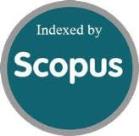Pumped-Storage Scheduling Using Glowworm Swarm Algorithm
Keywords:
pumped-storage, glowworm swarm algorithm, hydro-thermal iterationAbstract
This paper presents new solution methods and results based on a glowworm swarm algorithm for solving the 24-hour pumped-storage generation scheduling problem. Complete solution algorithms and encoding/decoding techniques are proposed in the paper. The optimal schedules of both pumped-storage and thermal units are concurrently obtained within the evolutionary process of evaluation functions. Significantly, no hydro-thermal iteration is needed. The proposed approach is applied with success to an actual utility system, which consists of four pumped-storage units and 34 thermal units. The results indicate the attractive properties of the glowworm swarm algorithm in practical application, namely, a highly optimal solution cost and more robust convergence behaviour.
References
A. J. Wood and B. F. Wollenberg, Power generation, operation, and control, 3rd ed., John Wiley & Sons, New York, 2013.
M. E. El-Hawary, “An overview of scheduling functions in hydro-thermal electric power systems,” Proc. the 1991 IASTED International Conference, pp. 1-37, March 1991.
S. Ruzic, , et al., “A flexible approach to short-term hydro-thermal coordination,” IEEE Transactions on Power Systems, vol. 11, no. 3, pp. 1564-1578, August 1996.
P. H.Chen, “Two-level hierarchical approach to unit commitment using expert system and elite PSO,” IEEE Transactions on Power Systems, vol. 27, no. 2, pp. 780-789, May 2012.
K. N. Krishnanand and D. Ghose, “Glowworm swarm optimization: a new method for optimizing mufti-model functions,” International Journal of Computational Intelligence Studies, vol. 1, no. 1, pp. 93-119, May 2009.
K. N. Krishnanand and D. Ghose, “Glowworm swarm optimization for simultaneous capture of multiple local optima of multimodal functions,” Swarm Intelligence, vol. 3, no. 2, pp.87-124, June 2009.
D. N. Jayakumar and P. Venkatesh. “Glowworm swarm optimization algorithm with topsis for solving multiple objective environmental economic dispatch problem,” Applied Soft Computing, vol. 23, pp. 375-386, October 2014.
Y. Q. Zhou, G. Zhou, and J. L. Zhang, “A hybrid glowworm swarm optimization algorithm to solve constrained multimodal functions optimization,” Optimization, vol. 64, no. 4, pp. 1057-1080, 2015.
S. S. Reddy and C. S. Rathnam, “Optimal power flow using glowworm swarm optimization,” International Journal of Electrical Power & Energy Systems, vol. 80, pp. 128-139, September 2016.
P. H. Chen, “Pumped-storage scheduling using evolutionary particle swarm optimization,” IEEE Transactions on Energy Conversion, vol. 23, no. 1, pp. 294-301, March 2008.
Downloads
Published
How to Cite
Issue
Section
License
Submission of a manuscript implies: that the work described has not been published before that it is not under consideration for publication elsewhere; that if and when the manuscript is accepted for publication. Authors can retain copyright of their article with no restrictions. Also, author can post the final, peer-reviewed manuscript version (postprint) to any repository or website.

Since Oct. 01, 2015, PETI will publish new articles with Creative Commons Attribution Non-Commercial License, under The Creative Commons Attribution Non-Commercial 4.0 International (CC BY-NC 4.0) License.
The Creative Commons Attribution Non-Commercial (CC-BY-NC) License permits use, distribution and reproduction in any medium, provided the original work is properly cited and is not used for commercial purposes




